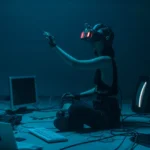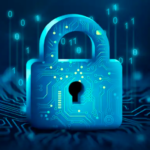From small village classrooms to towering urban universities, one belief echoes through every corner of the world: education is the key to success. Whether it’s building a career, contributing to society, or achieving personal fulfillment, education lays the foundation for a better future. This article explores why education holds such power, how it shapes individuals and societies, and what challenges we must overcome to make education accessible for all.
The Fundamental Role of Education in Society
Shaping Individual Growth
At its core, education nurtures personal development. It teaches us how to think critically, communicate clearly, and interact effectively with others. More than just acquiring knowledge, education molds character, builds confidence, and fosters resilience.
-
It enhances decision-making.
-
Encourages empathy and understanding.
-
Promotes lifelong learning.
The skills developed through learning empower individuals to navigate life’s challenges and seize opportunities.
Strengthening Economic Stability
A well-educated population fuels economic growth. According to the World Bank, each additional year of schooling can increase a person’s earnings by up to 10%. This translates into a more skilled workforce, reduced unemployment, and innovation in various sectors. Education is particularly crucial in today’s knowledge-based economy, where industries are evolving rapidly. From technology to healthcare, educated professionals are needed more than ever.
Why Education Is the Key to Success
Empowering Individuals with Knowledge
When people understand the world around them, they can make informed choices. Education equips individuals with the tools to analyze, evaluate, and act wisely. Whether it’s managing finances, understanding politics, or making health decisions education is the key to success in making empowered life choices.
Breaking the Cycle of Poverty
Education provides a ladder out of poverty. UNESCO reports that if all students in low-income countries had basic reading skills, an estimated 171 million people could be lifted out of poverty. That’s the transformative power of learning.
-
Educated parents are more likely to educate their children.
-
Literacy improves access to information and services.
-
Skills training leads to higher-paying jobs.
Cultivating Global Citizens
Education fosters understanding across cultures, reduces conflict, and builds bridges between communities. It teaches values like respect, justice, and equality values critical for peaceful coexistence and cooperation in a globalized world.
The Ripple Effect: How Education Benefits Society
Health and Well-Being
Educated individuals tend to live longer and lead healthier lives. Studies show that mothers with secondary education are twice as likely to give birth in a health facility, improving outcomes for both mothers and children. Education also plays a major role in:
-
Promoting hygiene and disease prevention.
-
Reducing child mortality.
-
Encouraging healthy lifestyles.
Civic Participation and Democracy
An educated society is more likely to engage in democratic processes. Citizens who understand their rights and responsibilities are better equipped to participate in civic life voting, volunteering, and holding governments accountable. Education helps build strong institutions, create transparent systems, and sustain democratic governance.
Overcoming Barriers to Education
Despite its importance, millions of people worldwide still lack access to quality education. To ensure education is the key to success for everyone, we must address several pressing challenges:
Economic Inequality
Children from low-income families often face barriers such as:
-
Lack of school supplies.
-
Inadequate nutrition.
-
Limited access to technology.
Investments in free or subsidized education, school meal programs, and digital access can help bridge this gap.
Gender Disparity
In many parts of the world, girls face cultural and systemic obstacles to education. According to UNICEF, around 129 million girls are out of school globally. Gender-sensitive policies, safe school environments, and community awareness campaigns are critical to change.
Quality of Education
Access alone isn’t enough quality matters. Undertrained teachers, outdated materials, and overcrowded classrooms can all hinder learning. Governments and institutions must:
-
Invest in teacher training.
-
Modernize curricula.
-
Embrace digital learning tools.
Lifelong Learning in the 21st Century
Adapting to a Changing World
Gone are the days when learning ended at graduation. In today’s fast-paced world, education is the key to success throughout life. Lifelong learning helps individuals:
-
Stay competitive in the job market.
-
Adapt to technological changes.
-
Remain intellectually engaged.
Online courses, adult education programs, and corporate training are making it easier than ever to continue learning.
Promoting Innovation and Creativity
Education fuels innovation. From scientists to entrepreneurs, some of the world’s biggest breakthroughs have come from educated minds. A strong education system fosters curiosity, supports experimentation, and nurtures the confidence to challenge the status quo.
Education in a Digital Era
E-Learning and Virtual Classrooms
The COVID-19 pandemic accelerated the shift toward digital education. Platforms like Coursera, Khan Academy, and Google Classroom opened up learning opportunities for millions. While challenges remain—like internet access and digital literacy—the potential is vast.
Bridging the Digital Divide
To make sure education is the key to success for everyone in a digital world, we must:
-
Expand broadband infrastructure.
-
Provide affordable devices.
-
Train teachers in digital instruction.
Only then can technology truly democratize education.
Real-Life Success Stories
Malala Yousafzai
A powerful advocate for girls’ education, Malala risked her life to attend school in Pakistan. She later became the youngest Nobel Peace Prize laureate and a global symbol of the belief that education is the key to success especially for marginalized communities.
Elon Musk
Though known for his entrepreneurial ventures, Elon Musk credits much of his success to self-education. He famously learned rocket science by reading books and speaking with experts—proving that even outside traditional classrooms, education empowers people to achieve greatness.
Actionable Steps to Support Education
Here’s how individuals, communities, and governments can work together to promote education:
| Stakeholder | Action Steps |
|---|---|
| Individuals | Donate to education charities, volunteer, mentor youth. |
| Communities | Support local schools, advocate for inclusive policies. |
| Governments | Increase education budgets, enforce school attendance. |
| Organizations | Offer scholarships, create internships, support e-learning. |
Conclusion: Will We Unlock the Potential?
In every story of triumph, in every leap of innovation, and in every act of change you’ll find education at the heart of it. From enabling personal growth to transforming nations, education is the key to success. But for this key to unlock its full potential, we must ensure it’s in everyone’s hands. So the question remains: what will you do to make sure education opens doors for all?





